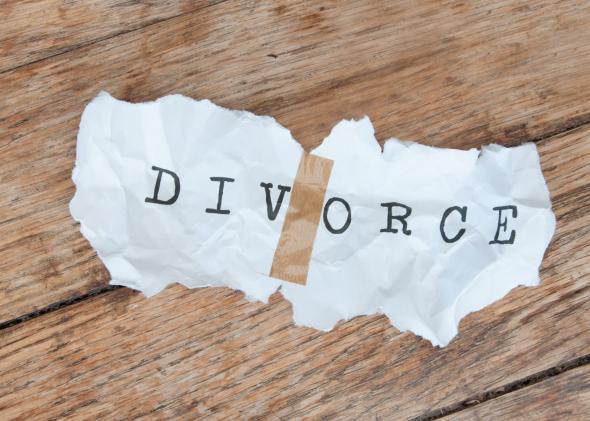If you spend a lot of time reading conservative polemics against gay marriage, you’ll notice a certain pattern. In an effort to distance themselves from accusations of homophobia, anti-gay activists frame their quest as a broad one—not an attack on gay people’s rights, but a defense of “traditional” marriage. If this claim is really true, there’s a simple way to prove it: Don’t just fight to ban gay marriage; ban divorce, too.
Sound silly? It’s certainly no sillier then the argument against gay marriage. The Rosetta Stone of gay marriage opposition, Robert P. George’s creepy, coitus-obsessed What Is Marriage? casts both marriage equality and divorce as roughly equal threats to the institution. George identifies four components of traditional, “conjugal” marriage, which he considers to be real marriage: penile-vaginal intercourse, procreation, exclusivity, and permanence. If the state allows any of these components to be violated, George argues, the institution of marriage will become unstable and incoherent. The state, then, must assert its legal authority to protect all four factors.
By my count, gay marriage and divorce each violate two of George’s must-haves. There’s obviously no penile-vaginal intercourse or procreation within gay marriages. But a divorce renders a marriage impermanent—and non-exclusive, presuming one or both partners wants to find a new mate. So what’s the bright line that makes gay marriage a lesser sin than legal separation? I have now read What Is Marriage? more times than I would like to admit, and I am quite confident that there is absolutely no principle that would prevent George’s thesis from extending to the total proscription of divorce.
In fact, George explicitly evokes divorce as an evil on par with gay marriage. He insists that the legalization of marriage equality would amount to “finishing what policies like ‘no-fault’ divorce began, and thus entrenching them.” Then, going a step further, he conjures the horror of divorce while discussing the alleged instability of same-sex relationships, arguing that “sociology and common sense agree that … stability is undermined by divorce.”
The point of this comparison, of course, is to traduce gay relationships by making them seem rickety and divorce-prone. But if George’s juxtaposition has any kernel of truth—if gay marriage was truly spurred by the divorce revolution—shouldn’t he also be arguing for a ban on no-fault divorce, or perhaps the end of divorce itself? George spills copious amounts of ink on encomia to the “permanence” of marriage, exhorting the state to ban gay marriage in an effort to preserve and encourage this permanence. Meanwhile, the real threat to impermanent marriages—the legal ability to opt out of your union—does not seem to merit any kind of state action in George’s book.
To be fair, a number of anti-gay conservatives have proposed ending no-fault divorce, and some have also repudiated the validity of second marriages. In my debate with First Things’ Matthew Schmitz, Schmitz informed me that he and his fellow orthodox Catholics also oppose second marriages for straight people; their opposition to gay marriage isn’t anything personal. But this claim is rather hard to accept with a straight face when those who devote millions of dollars and thousands of hours to fighting gay marriage spend precious little time attempting to roll back no-fault divorce.
Unlike many conservatives, I am not eager to return to a world where husbands and wives have to prove “cruelty” or infidelity in court—to a judge’s satisfaction—in order to dissolve their union. But I would like to see an ounce of intellectual consistency on the anti-gay right, and a widespread campaign to banish no-fault divorce would be a good start. It would be even more commendable for conservatives to follow their argument to its logical conclusion and fight to ban divorce altogether. A categorical ban, after all, is what the right demands for gay marriage—on the grounds that same-sex couples would destroy the stability of the institution. If preserving marriage is really the motive, why not prohibit the one thing that actually destroys marriages while we’re at it?
